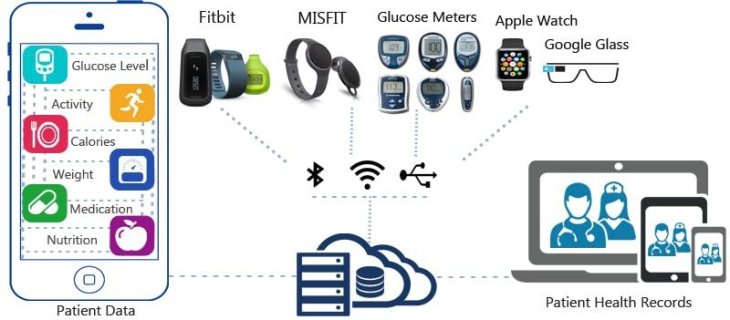Cyberattacks Targeted Medical Devices Decreased To 19% In 2019
Saanvi Araav - Sep 24, 2019

Two years after the famous Wannacry ransomware attack, a new report has revealed that attacks on medical devices declined to 19% in 2019 from 28% in 2018.
- How 30 Lines Of Code Destroy A 27-Ton Generator
- Chinese Hackers Conducted 40,000 Cyber Attacks On India In Just 5 Days
- Hackers Tried To Break Into WHO, Are They Trying To Stop Us From Fighting COVID-19?
It has already been two years after the Wannacry ransomware attack which crippled many organizations and medical facilities all over the world. It seems that the healthcare industry has learned the lessons. A recent report has shown that the number of cyberattacks on healthcare devices decreased to only 19% this year from 28% in the previous year.
Kaspersky's report
However, according to Kaspersky (a cybersecurity firm), this decline in the number of cyberattacks against healthcare facilities' devices is not observed everywhere.
Over 7/10 medical devices in the Philippines (about 76 %), Venezuela (77%), Argentina (73%), Libya (75%) are still subjected to many web attacks. This data is the latest one from the company database.
Two other countries located in the APAC region also placed among the 15 nations with the highest detected infections rate, with Thailand with 44% of devices attacked and Bangladesh with 58%.

Kaspersky researchers came up with the data after dividing the number of devices from medical organizations in countries with the number of devices where Kaspersky solutions detected malicious codes.
Medical devices are all computers, tablets, mobiles, server, hospital machines, and IoT gadgets which connect to the healthcare facility's Internet.
Yury Namestnikov
Yury Namestnikov (Head of GReAT team at Kaspersky) has commented on the matter. He said that people have become more aware after the attack "Wannacry". However, many countries are still very lagging behind in protecting medical devices.

He also added that they have observed the chances of getting attacked are linked to the amount of money the government is willing to spend on the cybersecurity in the healthcare sector. Another primary reason is the low awareness of cybersecurity of people who work at the medical facilities.
Featured Stories

Features - Jan 29, 2026
Permanently Deleting Your Instagram Account: A Complete Step-by-Step Tutorial

Features - Jul 01, 2025
What Are The Fastest Passenger Vehicles Ever Created?

Features - Jun 25, 2025
Japan Hydrogen Breakthrough: Scientists Crack the Clean Energy Code with...

ICT News - Jun 25, 2025
AI Intimidation Tactics: CEOs Turn Flawed Technology Into Employee Fear Machine

Review - Jun 25, 2025
Windows 11 Problems: Is Microsoft's "Best" OS Actually Getting Worse?

Features - Jun 22, 2025
Telegram Founder Pavel Durov Plans to Split $14 Billion Fortune Among 106 Children

ICT News - Jun 22, 2025
Neuralink Telepathy Chip Enables Quadriplegic Rob Greiner to Control Games with...

Features - Jun 21, 2025
This Over $100 Bottle Has Nothing But Fresh Air Inside

Features - Jun 18, 2025
Best Mobile VPN Apps for Gaming 2025: Complete Guide

Features - Jun 18, 2025
A Math Formula Tells Us How Long Everything Will Live
Read more

ICT News- Mar 03, 2026
Budget Entry-Level PCs Under $500 to Vanish by 2028 Due to Memory Price Surge
The era of the sub-$500 PC appears to be ending.

How To- Mar 04, 2026
Getting Started with AI: A Newbie's Simple Guide
Are you curious about artificial intelligence but not sure where to begin? You are not alone.
Comments
Sort by Newest | Popular